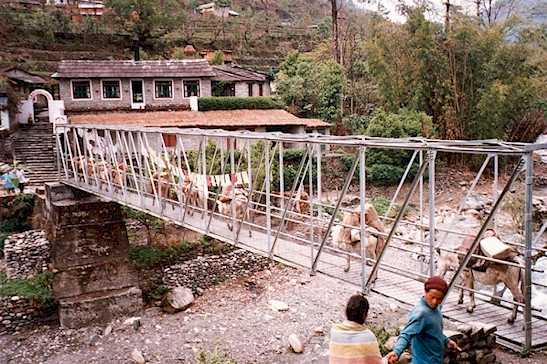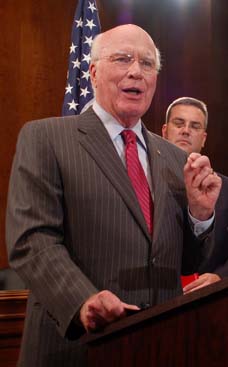
One of those things was technology. "Everybody has a cell phone," he said. The Internet, too, is huge. "The outside world is coming to Nepal," Mark said. When Mark was first in Nepal, the country was a monarchy. Since 1990, there have been 18 upstarts governments --which makes Mark wonder how a people and schools exist and make day-to-day progress in such an insecure world. However, one of the country's goals is to have a constitution in place by 2010, he said.
Lynne Mark, who left Nepal as a Peace Corps volunteer 31 years, noticed a few changes in the country
Bringing Nepal to Mason
By CHRISTIE BLECK • cbleck@lsj.com
September 6, 2009 •
From Ingham County Community News
MASON - For Mason High School English teacher Amber Hastings, it was a journey to a new land and a new culture.
Advertisement
For Det. Corp. Lynne Mark of the Mason Police Department, it was a trip to familiar surroundings.
What do a local teacher and detective have in common, anyway, to travel together to the Asian country of Nepal earlier this summer?
Hastings was part of a Michigan contingent of Fulbright-Hays scholars, all K-12 teachers, chosen for the trip, which took place June 12-July 13. Mark, who had served in Nepal in the Peace Corps in the 1970s and is fluent in Nepali, was called on to go along as an aide.
Sharing culture
The purpose of the Fulbright-Hays program, established in 1946, is to allow people to explore other cultures and bring them back to the United States.
In fact, one of the criteria used to choose teachers for the program, Hastings said, is showing how they'd teach their own students about the developing world from what they learned on the trip.
"How would the lesson plans go?" she said.
Participants also would have to withstand the rigors of the trip in the country, which, at about the size of Tennessee, has plains, hills and mountains, including the world's tallest peak, Mount Everest (which Hastings saw by plane).
The scholars first attended orientation lectures in the city of Kathmandu, where they learned about the country and visited various sites. Afterward it was on to Pokhara and getting paired with a host family.
Hastings and the other teachers then worked in Nepali classrooms and saw school life first hand.
Here and there
There are more than a few differences between Nepali and American schools, Hastings learned.
"Students stay in the classroom all day, and teachers rotate," she said, which is the opposite of how U.S. schools operate.
Textbooks are written by the Nepali government too.
"The topics in the textbooks were just different over what they'd be in the U.S.," Hastings said. (One of those topics, she said, was breastfeeding.)
The students were curious about the United States, she said, and wanted to know more about its customs, holidays and even whether Americans had arranged marriages.
(2 of 2)
Mark said the Nepali people are more direct in some of the questions they pose to foreigners, such as, "How old are you? How much money do you earn?"
Advertisement
That's just their custom, he said.
"It's not done in a mean way. It's a cultural thing."
Hastings noted the good manners exhibited by the uniformed Nepali students, which included attentiveness, standing up when someone entered a room and saying "good morning."
"They were the most polite people I've ever met," she said.
Mark agreed.
"From my knowledge, they were in school because they wanted to be there," he said.
Mark, who left Nepal as a Peace Corps volunteer 31 years and worked behind the scenes this time around, noticed a few changes in the country itself. One of those things was technology.
"Everybody has a cell phone," he said.
The Internet, too, is huge.
"The outside world is coming to Nepal," Mark said.
When Mark was first in Nepal, the country was a monarchy. Since 1990, there have been 18 upstarts governments --which makes Mark wonder how a people and schools exist and make day-to-day progress in such an insecure world. However, one of the country's goals is to have a constitution in place by 2010, he said.
Hastings also noticed some unusual things, such as the lack of garbage cans. But then , she thought, what would the people do when the cans are full?
"They just don't have the plan to deal with these things," Hastings said.
However, it should be remembered that Nepal is a developing country.
"It's not hopeless," Hastings said. "They're working on it. They're trying."
And the country could be more advanced than the Western world is in some ways.
"When I was a volunteer there," Mark said, "everybody smoked."
That wasn't the case this summer.
"Now you'd be hard pressed to find somebody smoking a cigarette."
Bringing culture back to Mason
The last week of the trip, Hastings said, was spent in Kathmandu reflecting on what they saw there.
The teachers eventually were to create two lesson plans, which would become the property of Michigan State University, which helped facilitate the program.
Of course, Hastings will bring Nepali culture to Mason High School where she teaches literature.
Hastings mentioned she liked Nepali poems, so she will bring those, along with other bits of literature, to the classroom.
What she won't do, though, is give tedious hour-long lectures on the country. Instead, Hastings said she will share five- to 10-minute "here and there" tales of Nepal, possibly starting out with, "Oh, my gosh, listen to this, what happened in Nepal."
She also plans to hang the country's flag in her classroom.
"It's going to be fun," Hastings said. "I'm excited about that."













